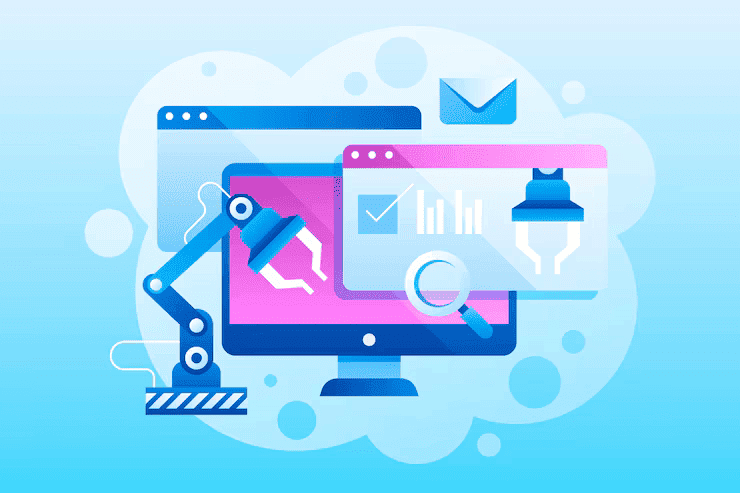


One of the best ways to do this is by using automation software. Automation helps companies save time, reduce mistakes
One of the best ways to do this is by using automation software. Automation helps companies save time, reduce mistakes, and get more done without needing extra people.
Automation software is a type of technology that handles repetitive and time-consuming tasks automatically. Instead of manually doing small tasks every day, automation software can complete them based on set rules or workflows.
Examples of tasks that can be automated include:
Sending emails
Managing customer information
Processing payments
Tracking inventory
Updating databases
Automation software works much faster than humans. A task that might take an employee hours can be completed in seconds by automation tools. It can work 24/7 without breaks, vacations, or sick days.
Manual work can lead to mistakes like typing errors, missed deadlines, or wrong data entries. Automation reduces these mistakes because it follows exact rules every time.
With automation, you don’t need to hire extra people to handle tasks as you grow. This helps businesses save money on salaries, training, and management costs.
Automation lets your team focus on creative, strategic, and revenue-generating tasks rather than repetitive work. Your employees will feel more motivated and perform better.
Customers today expect fast, accurate service. Automation helps you meet their expectations by speeding up response times and keeping communication consistent.
As your business grows, automation systems can handle larger volumes of work without slowing down or requiring big changes.
Marketing automation helps businesses run marketing campaigns without manual effort. It makes it easy to communicate with leads and customers at the right time with the right message.
Key Features:
Email marketing automation (welcome emails, abandoned cart reminders)
Social media posting schedules
Lead nurturing workflows
Analytics and campaign tracking
Popular Tools: HubSpot, Mailchimp, ActiveCampaign
Example: A retail company can send automatic discount offers to customers who haven’t shopped in the last 30 days.
Sales automation simplifies tasks like managing contacts, following up with prospects, and tracking deals through the sales pipeline.
Key Features:
Automatic lead assignment
Follow-up reminders
Quoting and proposal generation
Sales analytics and forecasting
Popular Tools: Salesforce, Pipedrive, Zoho CRM
Example: A sales team can automatically receive a notification when a lead opens an email, making it easier to follow up at the right time.
Finance automation helps businesses handle payments, invoices, and financial reporting quickly and accurately.
Key Features:
Invoice generation and sending
Payment reminders
Accounts payable and receivable tracking
Expense reporting automation
Popular Tools: QuickBooks, Tipalti, Xero
Example: A company can automatically send invoices to clients every month and receive reminders for overdue payments without any manual effort.
HR automation makes it easy to manage employee information, onboarding, time tracking, payroll, and performance reviews.
Key Features:
Automated employee onboarding checklists
Leave and attendance tracking
Payroll processing
Performance review reminders
Popular Tools: BambooHR, Gusto, Workday
Example: A new employee can receive welcome emails, document checklists, and training schedules automatically after they join the company.
IT and workflow automation is about creating smart systems that manage tasks across different business operations automatically.
Key Features:
Automated backups and updates
IT support ticket management
Internal approval workflows
Task assignments and notifications
Popular Tools: Zapier, Monday.com, Asana, ServiceNow
Example: When a new hire joins, Zapier can automatically create accounts for them across all company software tools (email, project management, CRM).
Managing invoices manually can be slow, error-prone, and costly for businesses. Accounts payable automation software helps by automatically handling the entire invoicing process from receiving and scanning invoices to getting approvals and making payments.
Invoice Capture: Automatically read and extract data from invoices, including PDFs, scanned documents, and emails.
Approval Workflows: Set up multi-level approval processes based on invoice amount, department, or vendor rules.
ERP Integration: Seamlessly connect with accounting or ERP systems to sync data and ensure smooth payment processing.
Real-Time Tracking: Monitor invoice status at every stage—from submission to approval to payment.
Duplicate Detection: Automatically spot and reject duplicate invoices to avoid overpayments.
Compliance and Audit Trails: Maintain a complete, searchable record of all transactions for easier audits and better compliance.
